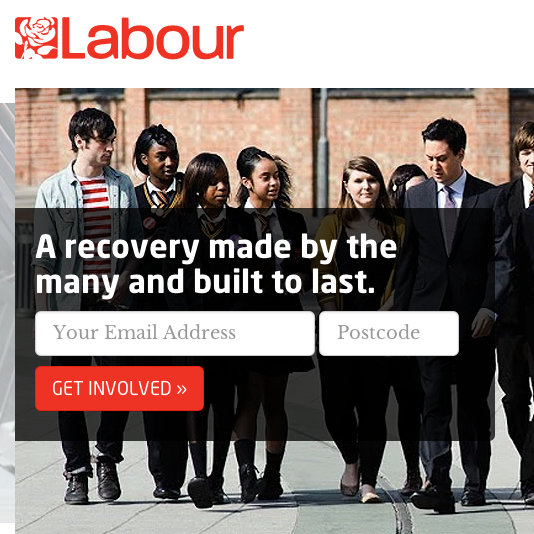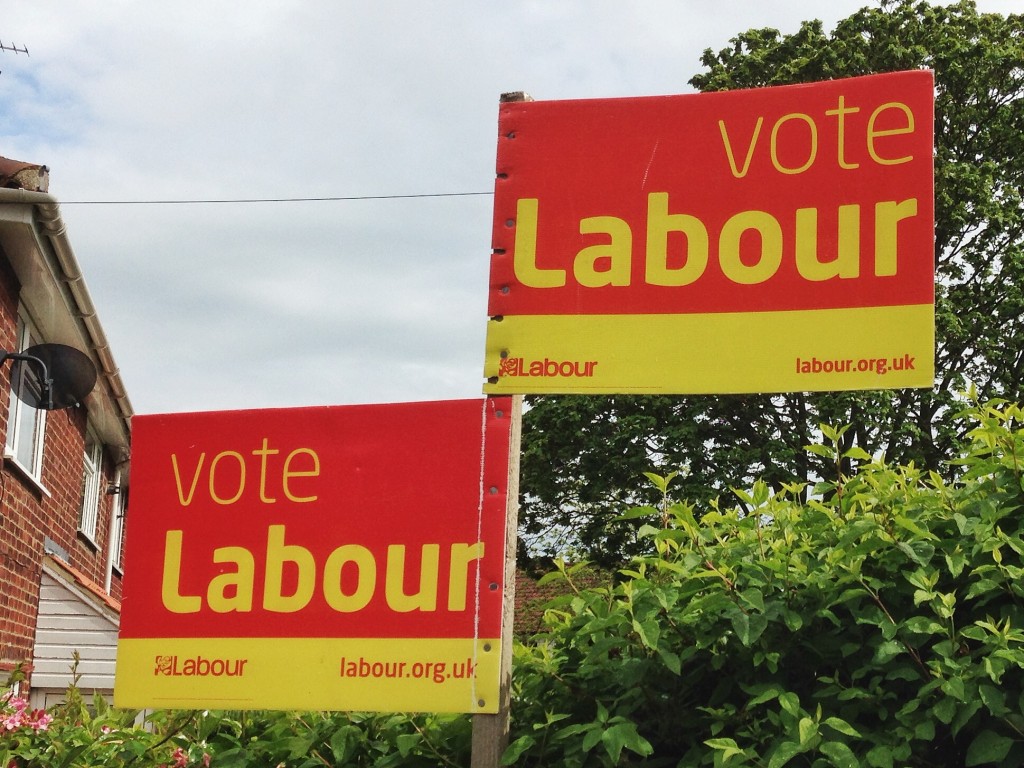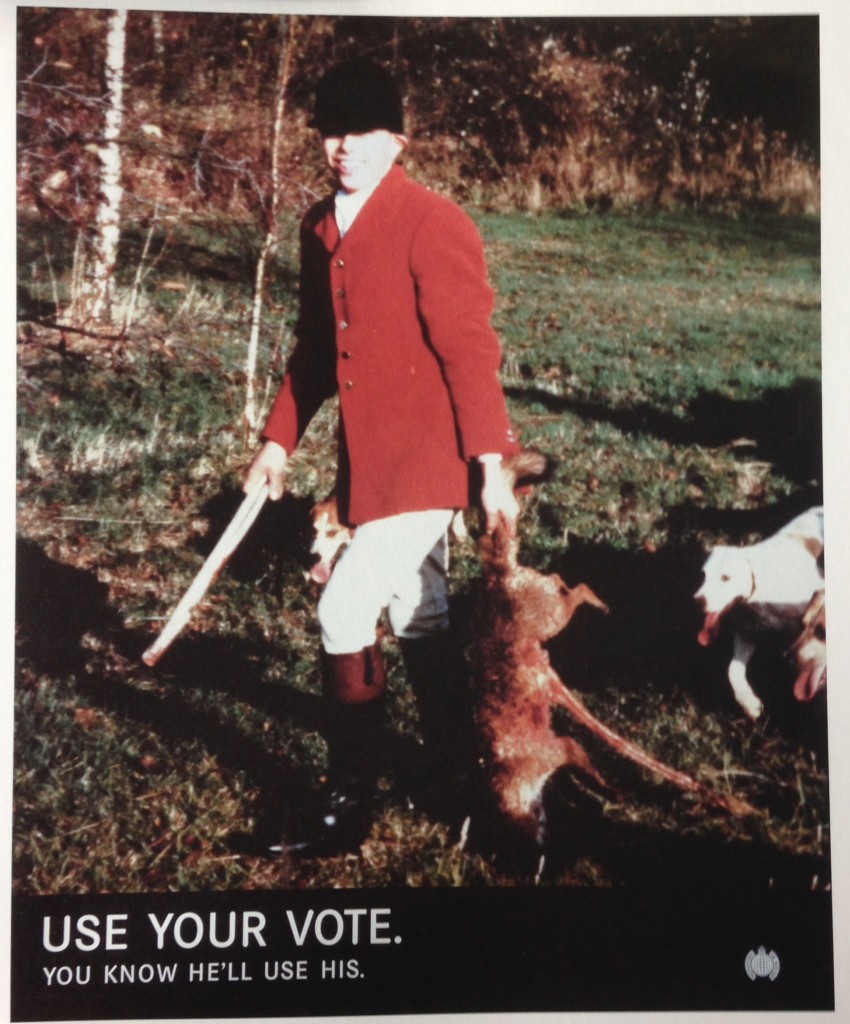Would better copy get your vote?
A while ago, I blogged about the missed copywriting opportunity of the estate agent’s board. As we approach local elections, I’ve been having similar thoughts about the signs that supporters of political parties display outside their homes (below).
If estate agents’ signs, with their paleolithically simple ‘this house is for sale’ message, represent square one on the marketing board game, then these signs are square two. There’s a call to action, but could it be any less sophisticated? In terms of the evolution of advertising, it recalls a nineteenth-century exhortation to ‘Try McCabe’s Unguent For Gout’ or similar.
Maybe it’s good to keep things simple and unambiguous, particularly when going for the broadest possible demographic appeal. But in the context we’re talking about, I’m not sure the effect will always be as intended. Here are some possible reactions from readers of the sign.
- ‘I’m voting Labour anyway.’ Labour supporters who already intend to vote will note and dismiss the message. A neutral result, but also a waste of resources.
- ‘Yes, I must remember to vote Labour.’ Labour supporters are reminded about the elections, and make a mental note to use their vote. A positive and desired result.
- ‘Labour support is strong round here. Maybe I don’t need to vote.’ Complacent Labour supporters wonder whether they can get away without voting, since support seems to be strong. A very negative result in marginal constituencies.
- ‘Labour support is strong round here. I must make sure I vote.’ Supporters of other parties are jolted out of complacency and motivated to use their vote, possibly tactically. Again, a very negative result.
The one outcome I can’t imagine is the one that the advertiser is presumably hoping for: an active voter changing their voting intentions, or an abstainer/apathete deciding they’ll make the effort on Labour’s behalf.
Admittedly, the sign might help them push somebody over the edge if they’d been actively considering switching their allegiance. In the parlance of our times, it could be an important brand touchpoint along the journey to a sale. But I really can’t see the sign doing much, if any, of the heavy lifting in terms of winning someone’s vote outright – let alone dispelling apathy.
Mostly, these signs preach to the converted. The real message isn’t ‘[You Should] Vote Labour’, but ‘I Vote Labour’ – a real ‘so what?’ proposition. Taking everything into account, these signs could easily be neutral at best, value-negative at worst for the advertiser.
However, that’s not because the on-street sign channel isn’t viable in itself. It’s because the content of the sign needs to be working harder. Much harder.
Most obviously, it needs to offer some sort of value proposition: what, in the broadest possible terms, the voter will get in return for voting Labour. A quick glance at Labour’s site turns up the slogan ‘A recovery made by the many and built to last’ (below). Leaving aside any reservations about that line (and I have many), it would easily fit on the sign, and move it forward one notch from the basic ‘buy this’ message.

Then again, maybe that’s a bit metropolitan for a local campaign. Just as the estate agent’s sign could say more about the home it’s promoting, so the political sign could say more about the area where it appears, perhaps linking Labour’s stated national priorities to local concerns, or bringing in the person hosting the sign somehow:
One in ten Norwich residents can’t afford to rent on this street. We’ll do something about it.
When your neighbour’s out of work, the whole street suffers. We’ll do more to create local jobs.
I believe in a fairer Britain. Do you?
We’re voting Labour to make Norwich a finer city.
Note that these are purely fictitious examples, not based on actual facts or policies.
Beyond that, there’s always the nuclear option of ‘knocking copy’ – criticising another party rather than promoting your own. But this can also be done in a very elegant, refined way, as in the 1997 campaign by Ministry of Sound to get young people voting. The slogan, written by Andy McLeod of BMP, was ‘Use Your Vote. You know he’ll use his.’ It appeared alongside images of assorted right-wing figures. (See here and pp236–7 of D&AD’s The Copy Book for more on this campaign.)
It would be tempting to pick on a nearby ‘posh’ area and say something like
Eaton residents always use their votes. Will you?
But a quick turn around the more prosperous Norwich streets reveals that political support rarely breaks down along such predictable demographic lines – there are plenty of champagne socialists (and Lib Dems), just as there are plenty of working-class Tories.
Maybe a better solution would be a non-specific version of the line, with no accompanying image, to let people fill in the blank themselves:
Use your vote. You know they’ll use theirs.
They’ll use their vote. Will you?
The unknown monster is always the scariest, and here the reader can fill in their own ‘they’, shudder at the thought of them getting their own way and resolve to use their vote to stop it happening.
Admittedly, that message could equally appeal to supporters of other parties, but you could say the same thing about Labour’s actual slogan above. With political convergence leaving less and less opportunity to say something really unique, maybe a memorable message linked with the brand is as good as it’s going to get. And it has to be better than something as blunt and dull as ‘Vote Labour’.
Tags: Andy McLeod, BMP, elections, knocking copy, Labour, Ministry of Sound, voter apathy

